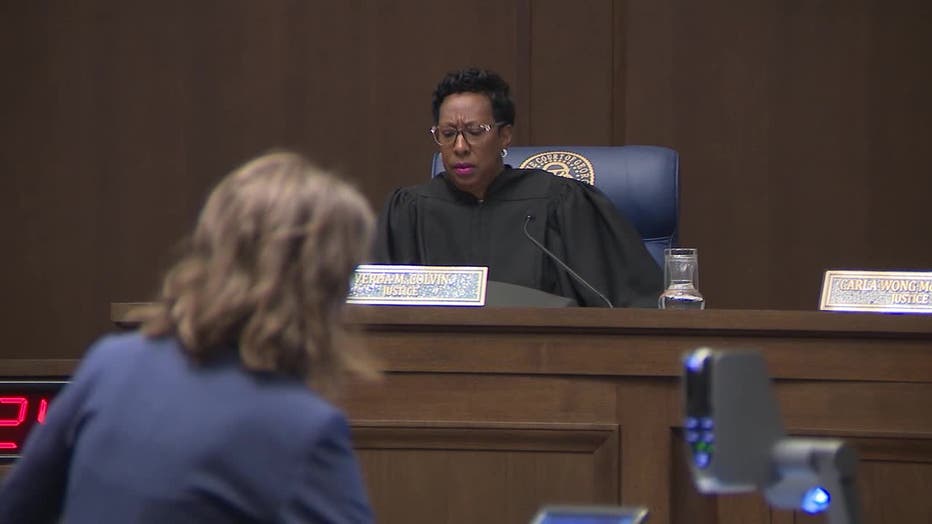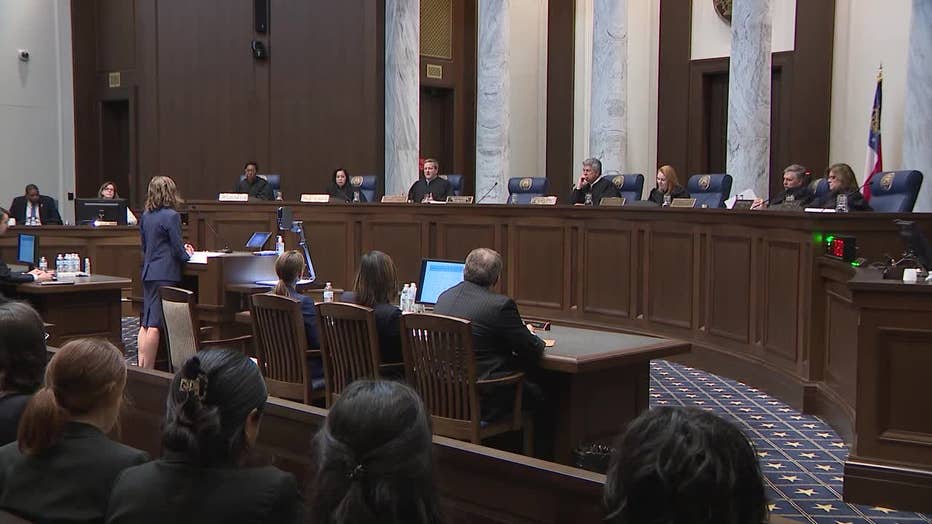Georgia Supreme Court considers whether state abortion law is void
Fate of Georgia's 'Heartbeat' abortion ban in State Supreme Court hands
Attorneys gave oral arguments in the case of Sistersong vs. State of Georgia Tuesday over the fate of Georgia's 'Heartbeat' abortion ban.
Georgia’s highest court is considering whether the state’s restrictive abortion law is void because it violated U.S. Supreme Court precedent that was in effect at the time when it was enacted.
A lower court judge last year ruled that the law enacted in 2019 was not valid because it was "unequivocally unconstitutional" at the time for governments to ban abortions before viability based on U.S. Supreme Court precedent in Roe v. Wade and another ruling. Therefore, he wrote, the measure did not become law when it was enacted and could not be law even after the U.S. Supreme Court overturned that precedent last year.
His ruling came in a lawsuit filed by American Civil Liberties Union, Planned Parenthood and the Center for Reproductive Rights on behalf of Georgia doctors and advocacy groups that challenged the law.

During oral arguments Tuesday before the Georgia Supreme Court on the state of Georgia’s appeal challenging the lower court ruling, state solicitor-general Stephen Petrany noted that the U.S. Supreme Court last year ruled that Roe v. Wade was an incorrect interpretation of the U.S. Constitution.
Because the Georgia abortion laws "would be valid if enacted today under the exact same federal Constitution, it was valid when it was enacted," he argued.
Even if the state high court doesn’t agree with that, Petrany argued, the U.S. Supreme Court has made very clear "that its decisions must apply retroactively, that lower courts and state courts cannot simply decline to apply its decisions."

Julia Stone, a lawyer for the doctors and advocacy groups, asserted that the lower court judge got it right, that the Georgia Constitution says a law can never be valid if it is unconstitutional at the time that it is passed. The Georgia high court has repeatedly said that the General Assembly "is presumed to know the law, including judicial interpretations of that law," she said.
"This is not a case where there was gray area in this in 2019," Stone said. "This was a case where there were 50 years of Supreme Court precedent."
The Georgia high court justices asked the lawyers for each side technical questions about their own arguments and those put forth by the other side.
Georgia’s abortion measure was signed into law by Gov. Brian Kemp in 2019 and took effect in July after the U.S. Supreme Court overturned Roe v. Wade. It prohibits most abortions once there is a "detectable human heartbeat."

Cardiac activity can be detected by ultrasound around six weeks into a pregnancy in cells within an embryo that will eventually become the heart. That means the law effectively bans most abortions in Georgia at a point before many people know they are pregnant.
The law includes exceptions for rape and incest, as long as a police report is filed, and allows for later abortions when the mother’s life is at risk or a serious medical condition renders a fetus unviable.
Fulton County Superior Court Judge Robert McBurney in November ruled that the Georgia abortion law was invalid because when it was signed into law, U.S. Supreme Court precedent allowed abortions well beyond six weeks.
His ruling immediately halted enforcement of the law statewide and allowed abortions to resume past the cutoff point established in the law. But the Georgia Supreme Court granted a request from the state to put McBurney’s ruling on hold while its appeal moved forward, again halting most abortions after about six weeks into a pregnancy.

